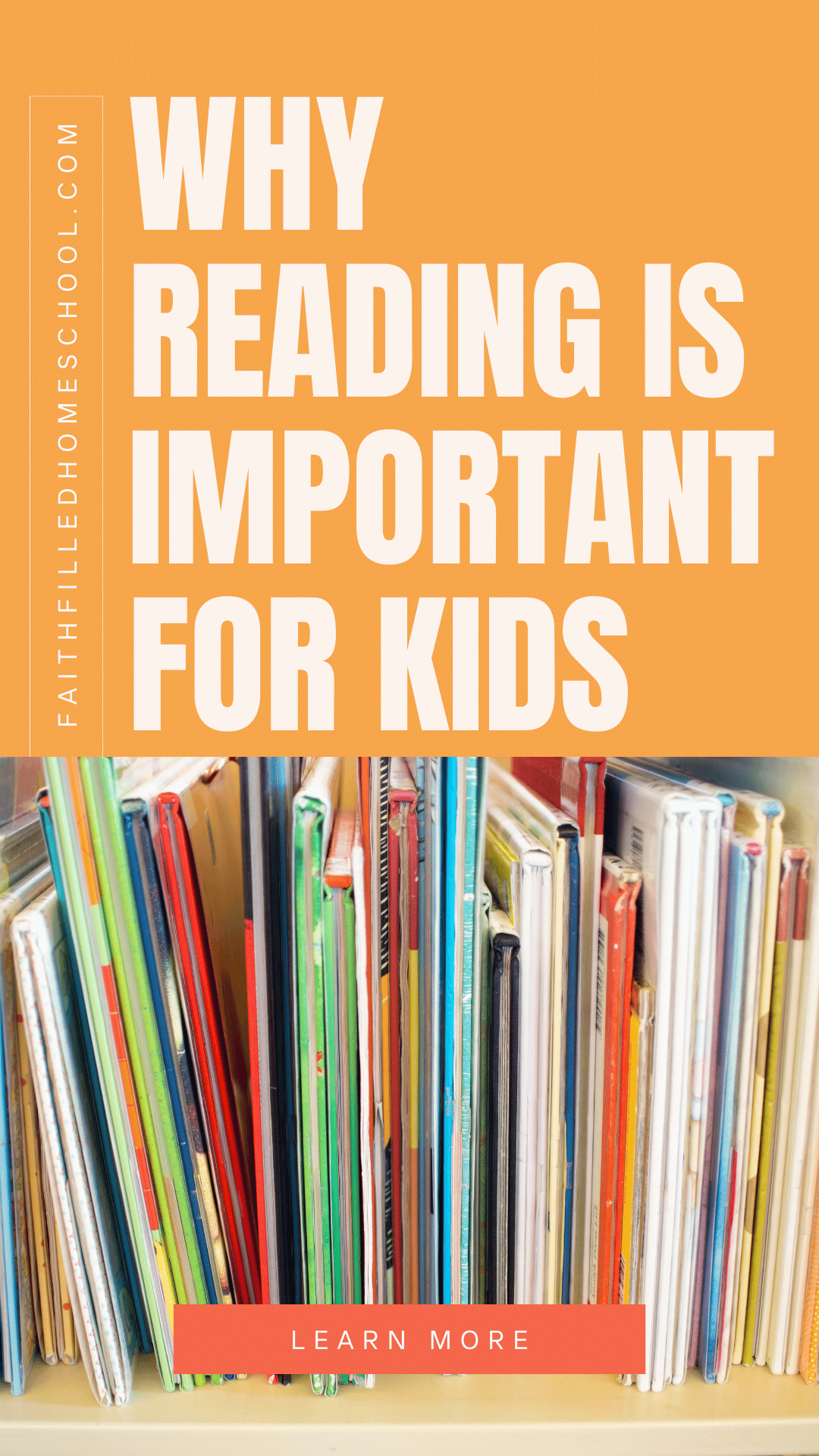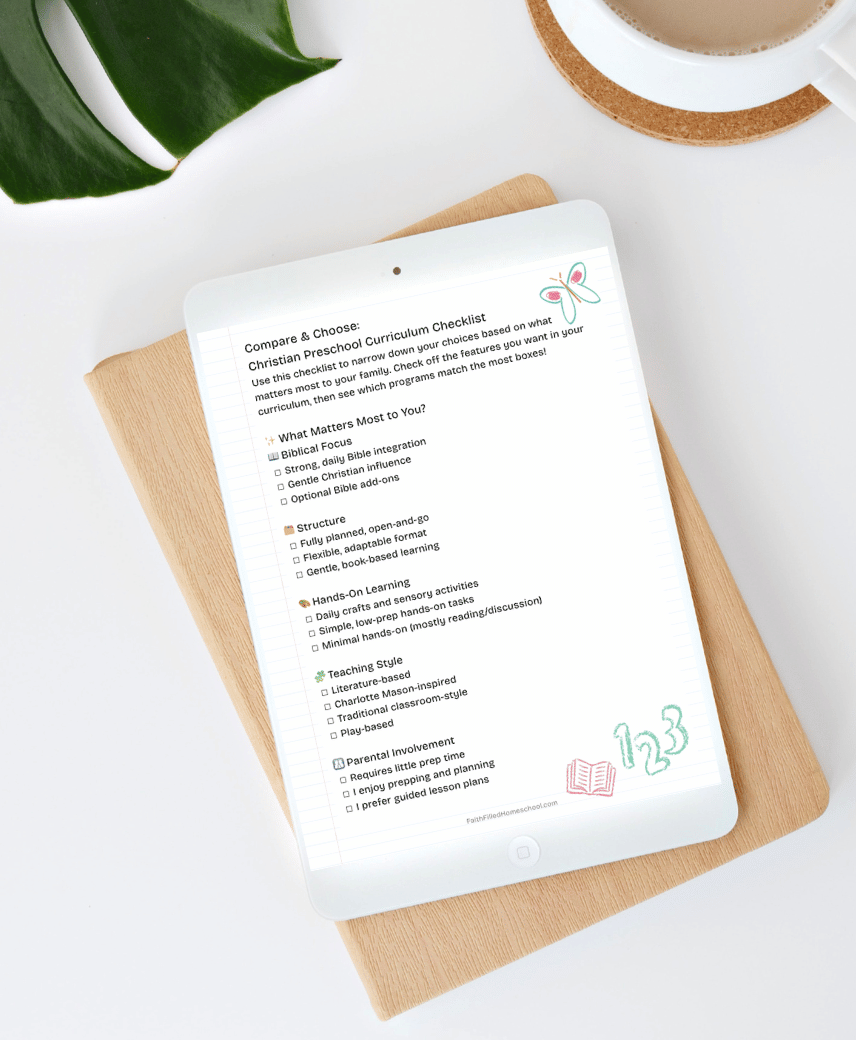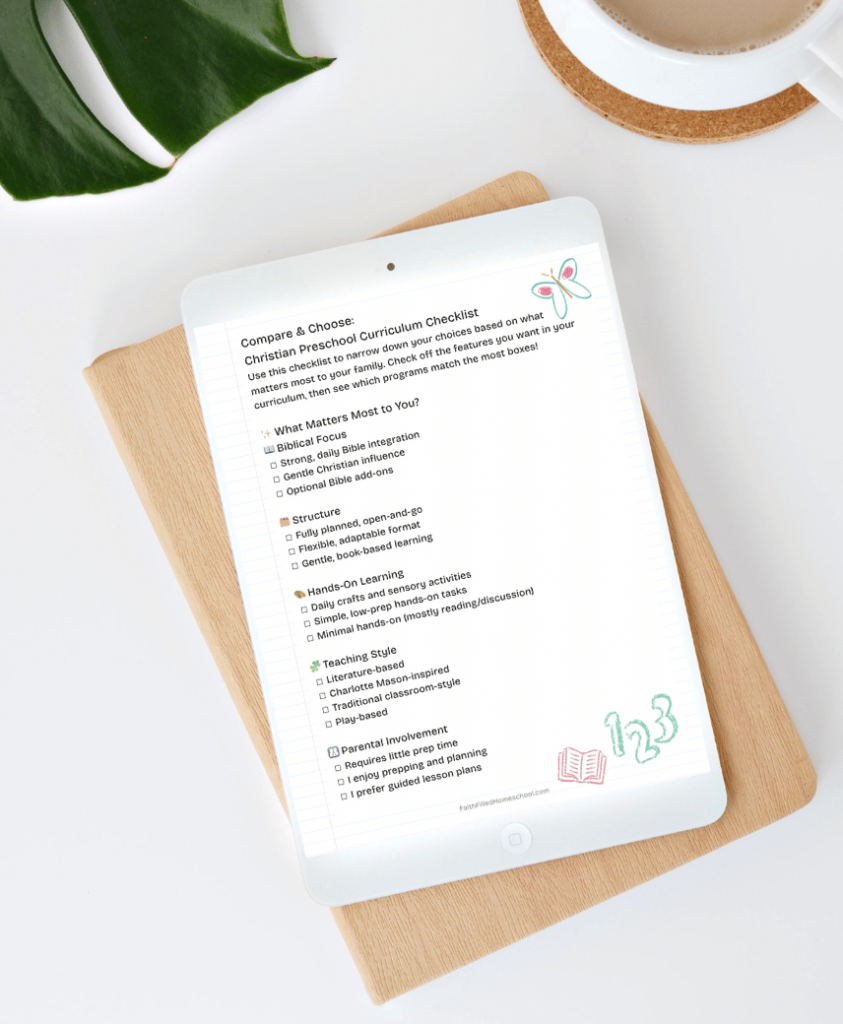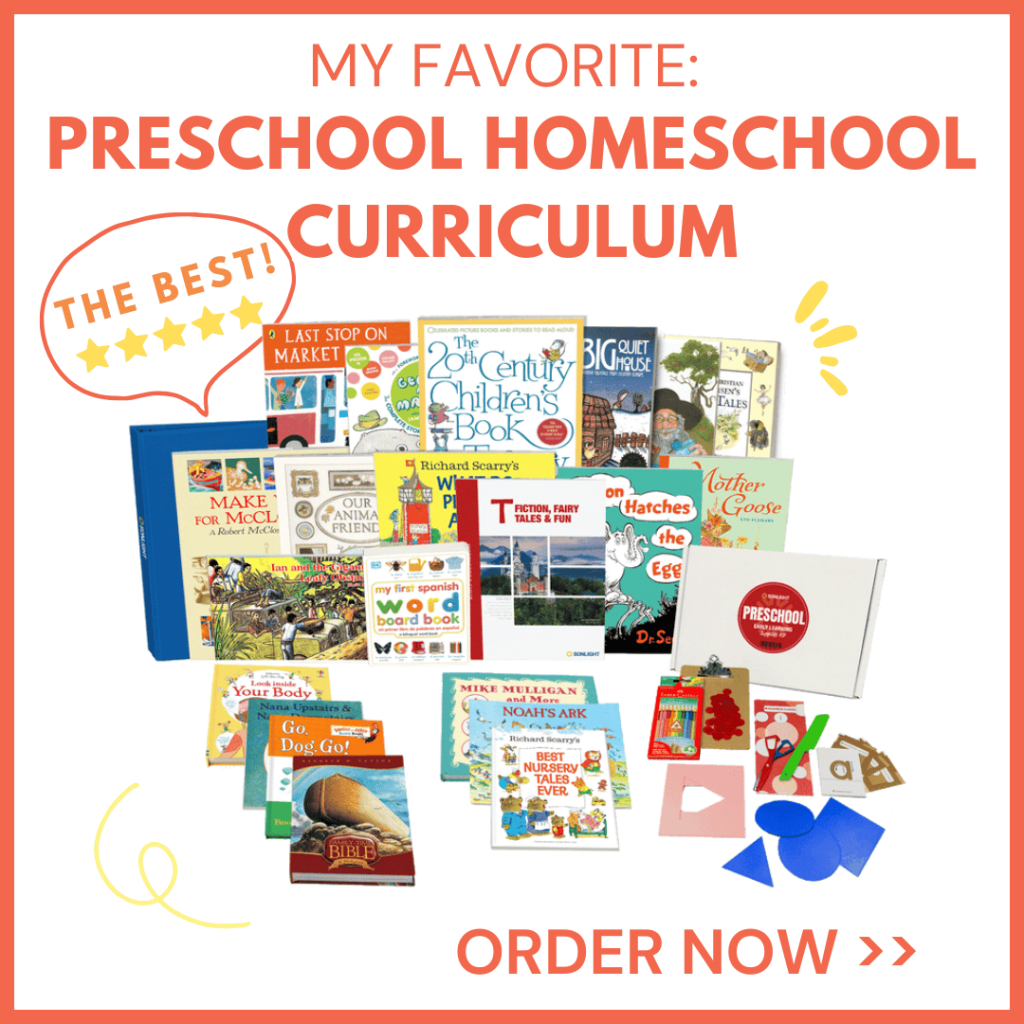Why Reading is Important for Kids

Why Preschoolers Learn Best Through Literature
–
If you’re anything like me, your vision for homeschooling your preschooler probably doesn’t involve hours of rigid worksheets and formal lessons. Instead, you dream of a gentle, joyful start — one that sparks curiosity, nurtures their hearts, and lays a beautiful foundation for a lifelong love of learning.
One of the very best ways to do that? Through literature.
Reading aloud isn’t just a sweet part of your day (though it definitely is!). It’s one of the most effective and meaningful ways to teach your preschooler at home. Here’s why literature is such a powerful cornerstone for early learning:
1. Stories Capture Their Hearts and Minds
Preschoolers learn best when their imaginations are engaged — and nothing captures their attention like a good story. Whether it’s a brave little mouse or a curious bear cub, stories invite children into a world where they can learn about emotions, actions, and consequences in a way that feels natural, not forced.
When they love what they’re hearing, they are naturally absorbing so much more than we realize.
2. Language Development Happens Organically
Through rich, well-told stories, your child is exposed to beautiful vocabulary, sentence structures, and storytelling rhythms. This exposure builds strong language skills without flashcards or drills. Over time, you’ll hear them using new words, mimicking story patterns, and even telling their own creative tales!
3. Big Concepts Become Tangible
Kindness, honesty, bravery — these are huge ideas for little minds. Stories bring these concepts to life through characters and relatable situations. It’s so much easier for a preschooler to understand patience after reading about a character who had to wait for something special, rather than simply being told, “You need to be patient.”
4. Learning Feels Natural and Joyful
One of the greatest blessings of homeschooling is that learning doesn’t have to look like a traditional classroom. Literature allows you to weave learning into everyday life in a way that feels organic. When lessons are nestled inside beloved stories, preschoolers don’t even realize they’re “doing school” — they’re just enjoying time with you.
5. Reading Together Strengthens Your Bond
As homeschooling moms, building strong, heart-level relationships with our children is one of our deepest goals. Reading together offers precious opportunities for snuggles, shared laughter, thoughtful conversations, and a deep sense of belonging. These connections give your child the security and confidence they need to explore the world around them.
If you want the science behind it, here’s the research:
Reading Aloud Boosts Language and Vocabulary Development
Studies show that children who are read to regularly have much larger vocabularies than those who aren’t.
-
Hart and Risley’s famous 1995 study found that by age three, children who were read to frequently heard millions more words than children who were not — something researchers now call the “word gap.”
-
Exposure to rich language patterns in books helps preschoolers develop stronger speaking, listening, and eventually writing skills.
Reading Strengthens Brain Development
Neuroscience research shows that reading aloud actually wires children’s brains for learning.
-
A 2015 study published in Pediatrics used MRI scans to show that children who were read to often had significantly more activity in the parts of the brain that support narrative comprehension and visual imagery — crucial for later academic success.
Story Time Enhances Emotional Intelligence
Books allow children to experience emotions and situations they might not encounter in daily life.
-
According to child development experts, reading about characters navigating challenges helps children build empathy, emotional regulation, and problem-solving skills.
-
It gives them a “safe space” to explore big feelings and moral choices.
Reading Together Strengthens Parent-Child Bonds
When you read to your child, you’re doing more than just building literacy skills — you’re building a secure emotional attachment.
-
Research consistently shows that shared reading promotes positive parent-child interactions, which can protect against stress, behavioral challenges, and even mental health struggles later in life.
Early Reading Predicts Academic Success
Children who are read to daily from an early age tend to perform better in school — not just in reading, but across all subjects.
-
According to the National Education Association, children who are read to frequently are better prepared to learn to read themselves and typically show stronger overall academic achievement.
In short:
Reading aloud is like planting seeds for language, thinking, empathy, and love — all at once. 🌱📚
It’s one of the simplest, most powerful ways to give your child a strong foundation for learning and for life.
Building Your Homeschool Days on a Foundation of Stories
At the preschool stage, you don’t need a perfectly structured plan. You need good books, cozy moments, and a willingness to slow down and savor this sweet season.
When you build your homeschool around literature, you’re not just teaching ABCs and 123s — you’re nurturing a love of learning, a strong family bond, and a heart that is open to wonder.
So, grab a favorite storybook, gather your little ones close, and let the adventure begin. 📚✨
Sources
-
Hart, B., & Risley, T. R. (1995). Meaningful Differences in the Everyday Experience of Young American Children. Paul H Brookes Publishing.
(Study on language exposure and the “word gap.”) -
Hutton, J. S., Horowitz-Kraus, T., Mendelsohn, A. L., DeWitt, T., & Holland, S. K. (2015). Home Reading Environment and Brain Activation in Preschool Children. Pediatrics, 136(3), 466–478.
(Study using MRI scans to show the impact of reading on early brain development.) -
National Education Association (NEA). Research on Early Reading and Literacy.
(Statements supporting the academic benefits of reading aloud early and often.) -
General Child Development Research:
(Numerous studies affirm that shared reading promotes emotional intelligence, empathy, and strong parent-child bonds.)
Child Development Research Affirming the Benefits of Reading Aloud
Research Studies and Articles:
Bus, A. G., van IJzendoorn, M. H., & Pellegrini, A. D. (1995).
“Joint Book Reading Makes for Success in Learning to Read: A Meta-Analysis on Intergenerational Transmission of Literacy.”
- Published in Review of Educational Research.
- Found that shared reading not only builds literacy but also strengthens emotional bonds between parents and children.
Salo, V., Flykt, M., Poli, A., Biringen, Z., & Punamäki, R. L. (2019).
“Parent–child emotional availability and reading behavior predict early literacy skills.”
- Published in Early Childhood Research Quarterly.
- Showed that emotional availability during shared reading time predicted better emotional connection and literacy outcomes.
Mar, R. A., Oatley, K., & Peterson, J. B. (2009).
“Exploring the Link Between Reading Fiction and Empathy: Ruling Out Individual Differences and Examining Outcomes.”
- Published in Communications.
- Demonstrated that reading fiction helps children (and adults) develop empathy and theory of mind (the ability to understand others’ feelings and perspectives).
Karrass, J., & Braungart-Rieker, J. M. (2005).
“Effects of Shared Parent–Infant Book Reading on Early Language Acquisition.”
- Published in Journal of Applied Developmental Psychology.
- Emphasized how shared book reading builds not just language, but also warmth and responsiveness between parent and child.
Mendle, J., & Bornstein, M. H. (2007).
“Infant temperament and parental emotional availability predict attachment security: A longitudinal study of low-risk families.”
- Highlighted that emotionally responsive parenting during shared activities like reading promotes secure attachment.
Books by Experts:
The Read-Aloud Handbook by Jim Trelease
- Classic, highly recommended for parents and educators.
- Explains how reading aloud not only builds academic skills but strengthens emotional bonds and nurtures love of learning.
How to Raise a Reader by Pamela Paul and Maria Russo
- Focuses on how shared reading helps children grow emotionally and socially, as well as intellectually.
The Whole-Brain Child by Daniel J. Siegel and Tina Payne Bryson
- Discusses how connecting through simple daily activities like reading helps integrate emotional and cognitive development, leading to healthier brain growth and deeper parent-child connections.
Raising Human Beings by Dr. Ross W. Greene
- Focuses more broadly on building empathy and emotional regulation in children through relational parenting, with reading mentioned as a natural tool.

Not Sure Which Preschool Curriculum Is Right for You?
Grab your free copy of Christian Preschool Curriculum Checklist




